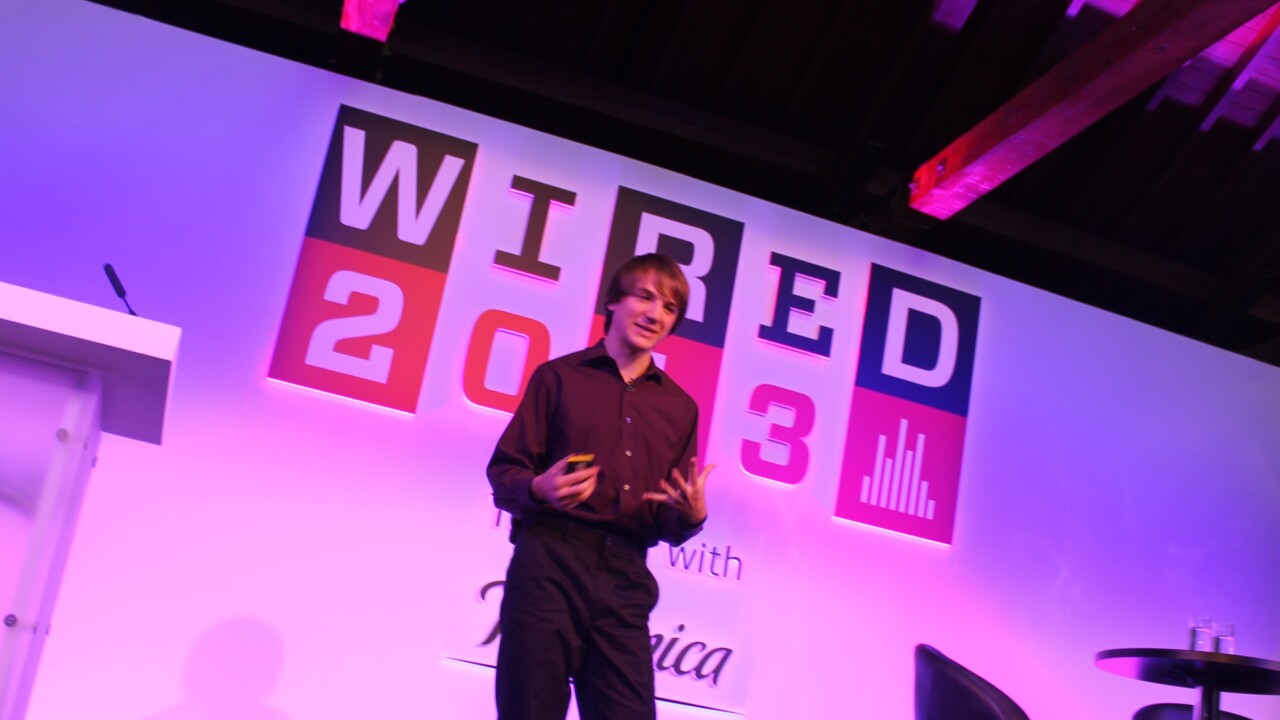
Jack Andraka isn’t your typical teenager. Last year, the then 15-year-old received prizes and plaudits for his pioneering work in the early detection of pancreatic cancer – work carried out under his own steam and in his own spare time.
He’s now in talks with a number of pharmaceutical companies to ensure his handiwork is made available far and wide, and at the Wired 2013 conference in London earlier today, Jack gave an impassioned and inspiring speech regaling how he battled against the naysayers to see his work through to fruition.
But there’s a problem in academia, says Jack. Paywalls.
Paywalls in academia
Indeed, paywalls are becoming a more common sight in the digital media realm in general, but for those out of the loop with academia, it seems access to knowledge is being strangled because of them.
“What’s happened is we now have this really fierce knowledge aristocracy, where .008% of the population are the only ones that can access that information,” says Jack. “But it shouldn’t matter how much money you have, you should have the exact same access to information.”
This all stemmed from Jack’s own research efforts. Not exactly flush with cash, he tried many ways around the prohibitively expensive paywalls, but to little avail.
“Like any respectable teen, I tried to pirate them, and when that didn’t work, I tried emailing the professor who would say that copyright prevented him from giving it away,” says Jack. “I then broke down and paid the $35 for those articles – I begged my parents to – and then discovered they had nothing to do with my research whatsoever.”
Jack says that 90% of scientific journals are locked tightly behind these paywalls, making them completely inaccessible to youth like him. But it’s not just a problem for teens like him.
“If a Katy Perry single costs 99 cents, and a seminal science paper costs $35…there’s a problem there, right?,” says Jack. “And that’s one of the big problems with teens today, there’s this fundamental disconnect between us and science – we just can’t get to it because we can’t afford it.
“Harvard University recently released a statement saying they can’t afford these articles any more either,” he continues. “If Harvard can’t afford its research articles, how can you expect a teenager like me to do that? What does that say about the world of academic publishing, the flow of information and the accessibility of knowledge, when Harvard can’t afford it?”
But that is the perceived value of academic research, and by using these paywalls, Jack says they’ve instituted this rigid class system.
“We have this scientific upper class, where people who can afford these articles work at corporate laboratories, or wealthy scientific institutions,” he says. “Then we have the knowledge middle class, where we can look at abstracts online, but can’t really get access to the information. Then there’s the knowledge underclass, those who have no access to the Internet whatsoever, and no access to knowledge.”
There’s room for innovation here for sure, a more malleable system that acknowledges not everyone can afford fully access to scientific journals. But Jack isn’t without hope that a fix can be found.
“I think we can do this, because if a teenager who didn’t quite know what a pancreas was when he started this could find a new way to attack pancreatic cancer, just imagine what you could do?,” he says.
Wise words for such a tender age.
Meanwhile, be sure to check out all our coverage from Wired 2013 here.
Get the TNW newsletter
Get the most important tech news in your inbox each week.




